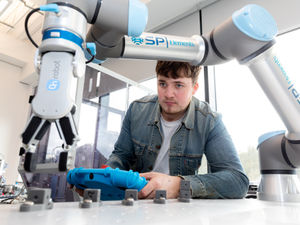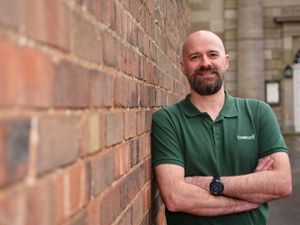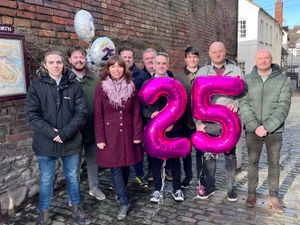BCRS Business Loans embarks on journey to net zero
Black Country-based business lender BCRS Business Loans has embarked on a new carbon reduction project that will see it offset all its business carbon emissions.
BCRS has been working with the University of Wolverhampton to assess and improve its environmental footprint.
Across all areas, including travel, commuting and energy usage, the assessment found that BCRS, based at Wolverhampton Science Park was emitting 29.6 tonnes of carbon dioxide per year.
In response, BCRS has begun a carbon reduction project and engaged with environmental organisation Ecologi to offset 36 tonnes of carbon dioxide per year through carbon avoidance. This amounts to the lender’s annual emissions plus extra to account for margins of error in the calculations.
BCRS Business Loans chief executive Stephen Deakin said: "We know that for many of our customers the road to net zero is important, both because of potential regulatory pressures but also because it is the right thing to do to look after our planet.
“We agree, and it's our goal to help our customers on this journey as much as possible. However, we recognise that we can't begin to help customers until we get a handle on our own emissions.
“The road to net zero is something that we are passionate about at BCRS, and I am pleased to report that we have made some fantastic progress in this area.”
So far this year, via Ecologi, BCRS has funded the planting of 90 trees and four climate projects around the world that have avoided six tonnes of carbon dioxide equivalent. These include a wind power project in Mexico, a project turning methane gas into electricity in Brazil, a project distributing cleaner cookstoves in Kenya and a project generating wind power in the United States.
In the next 12 months, BCRS will be exploring the ways in which it can support its customers with their own journey to net zero. The lender has recently added questions to its application form to measure any activity that customers are already undertaking to reduce their carbon emissions, to provide an insight into how the organisation could focus its support in the future.
The team worked with the University of Wolverhampton after enlisting the help of the Environmental Technologies and Resource Efficiency Support Scheme (EnTRESS), a project which had been supported by the European Regional Development Fund.
Dr Paul Hampton, head of the School of Architecture and Built Environment at the university, said: “Part of our role in the region’s economy is to support small and medium-sized enterprises (SMEs) on the adoption of environmental technologies and resource efficiency processes. Working with BCRS has enabled us to help them identify their impact and implement practical ways of reducing their impact upon the planet.”
Regional alternative lender BCRS Business Loans specialises in funding for businesses that are struggling to access finance from traditional lenders.
As a community development financial institution (CDFI), BCRS offers loans between £10,000 and £150,000 to businesses making a positive contribution to the social, environmental or economic wellbeing of the West Midlands to support their growth and recovery plans.
BCRS’s progress with tree planting and climate projects can be followed at ecologi.com/bcrsbusinessloans.





